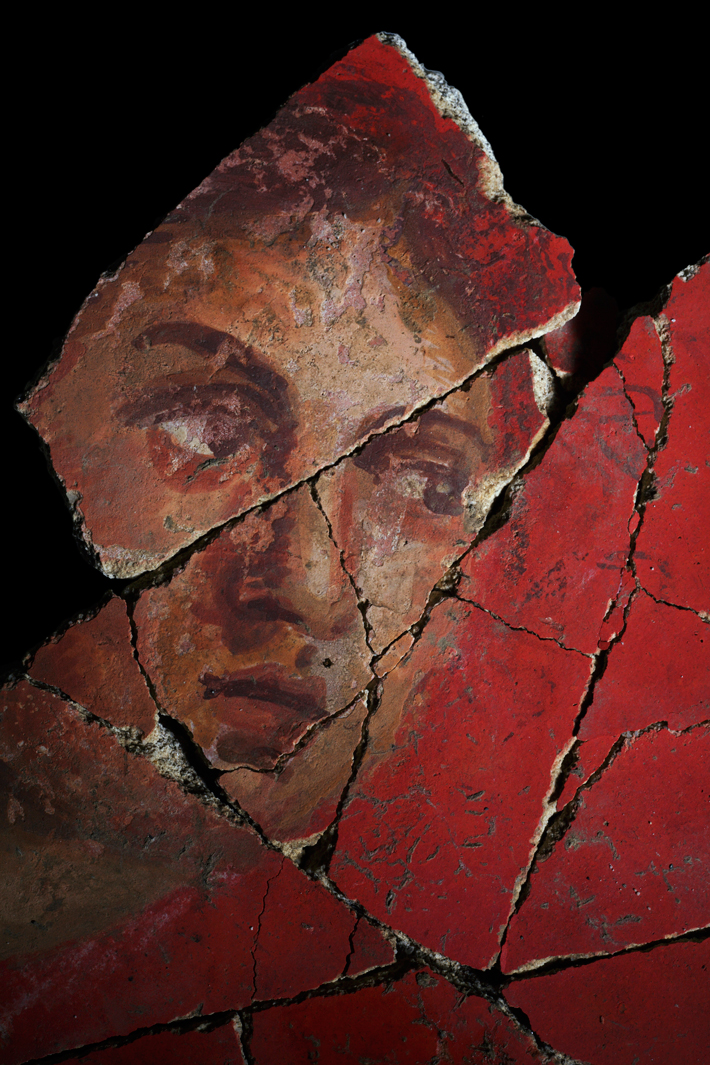Julian Augustus
At Rheims I reviewed the legions as they marched through the city gates, all of us sweating in the hot August sun. It was a lowering day, humid and ill-omened. As I stood on the platform outside the city gate, gnats whirring about my head and sweat trickling down my face, a message from Vienne was handed to me. It was a brief note from Florentius. My wife had been delivered of a boy who had died shortly afterwards. She was in good health. That was all.
 It is an odd thing to be the father of a son and the grieving father of a dead son, all in the same instant. I handed the letter to Sallust. Then I turned back to the legions who were marching rhythmically now in Pyrrhic measure to the sound of pipes.
It is an odd thing to be the father of a son and the grieving father of a dead son, all in the same instant. I handed the letter to Sallust. Then I turned back to the legions who were marching rhythmically now in Pyrrhic measure to the sound of pipes.
Priscus: The midwife cut too short the child’s umbilical cord. We later learned that she had been paid to do this by the Empress Eusebia. Yet I never heard Julian refer to Eusebia in any but the most glowing terms. It is sad how tangled the relations among princes become… What a ridiculous statement! We are all in the habit of censuring the great, as if we were popular playwrights, when in fact ordinary folk are quite as devious and as wilful and as desperate to survive (if not to prevail) as are the great; particularly philosophers.
Julian skips the rest of that year’s campaign with a note that a section from his earlier book will be inserted. That will be your task. Personally, I find his book on the Gallic wars almost as boring as Julius Caesar’s. I say “almost” because a description of something one has lived through can never be entirely dull. But descriptions of battles soon pall. I would suggest—although you have not asked for my literary advice—that you keep the military inserts to a minimum.
Julian’s autumn campaign was a success. He fought a set battle at Brumath which strategists regard as a model of brilliant warfare. I wouldn’t know. At the time I thought it confusing, but it opened the road to Cologne. That part of the world, by the way, is quite lovely, especially a spot called the Confluence, where obviously—two rivers join, the Moselle and the Rhine, at a town called Remagen—ours; just past Remagen is an old Roman tower which commands the countryside. Not far from Remagen is Cologne, which to everyone’s amazement Julian regained, after a brief battle.
We remained at Cologne all of September. Julian was in excellent form. Several of the Frankish chiefs paid him court and he both charmed and awed them, a rare gift which he apparently shared, if one is to trust Cicero, with Julius Caesar.
A light note of no consequence: Oribasius bet me one gold piece that Constantius would take revenge on Julian for lying to Marcellus. I bet him that he would not. I won the gold piece. We then spent the winter at Sens, a depressing provincial town north of Vienne. It was nearly the last winter for all of us.